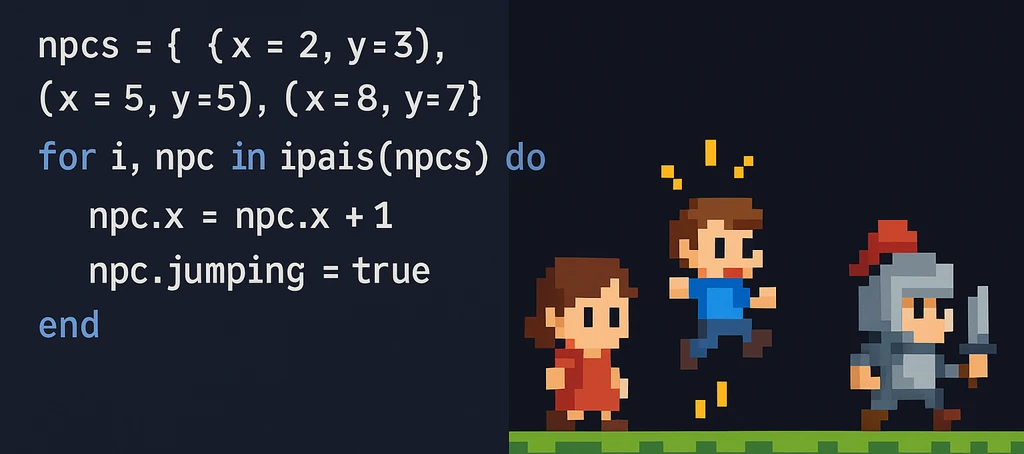Lua: Small Language, Big Impact
A lightweight script is a heavyweight in modern game systems.

I’ve been working on a game system for a few years now. At last check, it manages thousands of NPCs with triggers, scripts, reactions, and even proximity detection. Each character can respond differently based on player actions, game state, and environmental conditions.
The game engine is C++. The NPC behavior system? Pure Lua.
Lua started life powering data entry for Brazilian oil engineers at Petrobras in the early 1990s. From mining equipment configurations to modern game AI—that’s quite a journey for a “simple” scripting language.
Compare and Contrast: The Language Battle
Let’s see how different languages handle the same task. Here’s a simple NPC greeting system:
Python approach (Civilization IV style):
def greet_player(npc, player):
if player.reputation > 50:
return f"Welcome back, {player.name}!"
elif player.has_item("quest_item"):
return "Ah, you have what I need!"
else:
return "Move along, stranger."
JavaScript approach (web game style):
function greetPlayer(npc, player) {
const reputation = player.reputation;
if (reputation > 50) {
return `Welcome back, ${player.name}!`;
} else if (player.hasItem("quest_item")) {
return "Ah, you have what I need!";
} else {
return "Move along, stranger.";
}
}
Lua approach:
function greet_player(npc, player)
if player.reputation > 50 then
return "Welcome back, " .. player.name .. "!"
elseif player:has_item("quest_item") then
return "Ah, you have what I need!"
else
return "Move along, stranger."
end
end
Why Lua Wins for Games
Python has found its niche in strategy games like Civilization IV, where it handles complex AI logic and modding. But Python’s memory overhead becomes problematic in real-time scenarios.
JavaScript works great for web games and some modding systems like browser-based game modifications, but integrating it with C++ game engines requires complex build processes and bridging layers.
Lua was designed from day one to be embedded. According to game development analysis, this fundamental design choice makes Lua perfect for extending existing C++ systems without architectural compromises.
then/end blocks the way they are by Python’s whitespace rules or JavaScript’s curly brace complexity.The Modding Multiplier
The real power shows in extensibility. Over 75% of game studios use Lua bindings in their pipelines. World of Warcraft’s addon system, Garry’s Mod’s creativity explosion, Roblox’s massive user-generated content ecosystem—all powered by Lua’s sandboxing capabilities.
Lua allows programmers to implement features rather than providing them directly. This meta-mechanism approach has been essential to keep the language simple.
— Roberto Ierusalimschy, Lua Creator
Bridging C++ and Lua: Enter Sol2
Circling back to the start–using C++ in our game system. While we’ve covered how useful Lua is in general, for me, the magic happens in the binding layer. Sol2 makes exposing C++ classes to Lua almost trivial. Here’s how you’d expose a simple Player class:
sol::state lua;
lua.new_usertype<Player>("Player",
"name", &Player::name,
"health", &Player::health,
"move", &Player::move
);
Now your Lua scripts can directly manipulate C++ objects:
player.name = "Hero"
player:move(10, 20) -- Calls C++ method
When your NPCs need to react instantly to player proximity, when thousands of scripts run every frame, when modders want to safely extend your world—Lua doesn’t just work. It disappears into your workflow while making everything else possible.








